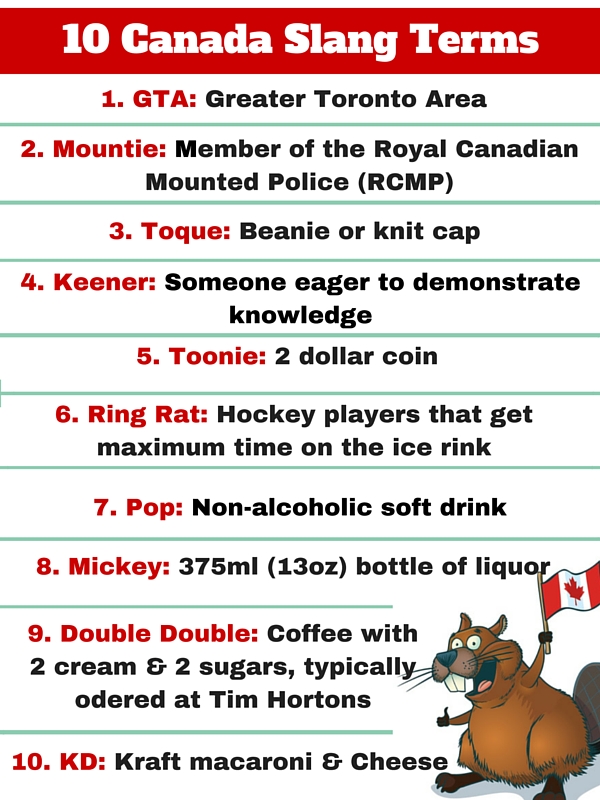Is there such a thing as Canadian English?
Most in United States would say that Canadian English is very much like the American one, with a few subtleties and variation in pronunciation and writing. Canadians, on the contrary, will tell you that Canadian English is more akin to British English. But who is right? And what really is Canadian English?
To answer this question we have to look a little into the History of Canada.
Origin
The French, the 1600s, started colonizing some parts of what would one day become Canada. Later on, in the mid 1700s, England got into a war with France and in 1763, the Treaty of Paris was concluded, forcing France to cede “New France” to England. Following the Treaty, England allowed any French to stay who pledged allegiance to the English King. During this time though, there were not many English speakers in Canada, and it was not until the American Revolution changed that that changed.
During the American Revolution, anyone who fled American colonies opposing its independence was rewarded with land in Canada. So Canadian English is both American and not American at the same time – because it’s speakers had come from American colonies, but were not American because they rejected the newly independent nation.
This mix of American English(originally from England) and the French who stayed behind following the Treaty would form the essence of Canadian English.
Ok, so is Canadian English different?
We very often hear about American English vs British English or even Australian English. Those learning the language can very distinctly tell that there is a clear difference between them, but where does Canadian English fall on the spectrum in the middle of all this?
Firstly, Canadian English has its own dictionary and the Canadian Press has its own style guide. In terms of spelling, it is a mish-mash between the British and the American – jail but centre, analyze but colour and zed for the letter Z. Because Canada is bilingual, French may also have an effect.
In terms of pronunciation, the standard stereotype is that Canadian English is overall much like American English; though there are some differences. The Canadian accent – or accents, since there is a bit of variation across the country (and much more in Newfoundland) – has a few signal features, and they, too, trace partly to the US and partly to Britain.
The best-known feature is ‘Canadian raising’, which affects two specific diphthongs before voiceless consonants: an example of this is when they pronounce “out” and “about” sounding like “oot” and “aboot”. This feature is present across much but not all of Canada. It may be influenced by Scottish English (many British emigres were Scots), or it may be a relic of Shakespeare-era pronunciation.
Slangs
Most arguably the biggest hallmark of any given language are the popular slangs. They appear in movies, are heard in songs and sometimes written in novels. “Howdy mate” says the Australian, “Hey lads” says the Englishman and “whats up” says the American; but since we are talking about Canada, what slangs do Canadians use?
There are a number of Canadian slangs, but the most notorious one is eh. No kidding, eh; Thanks, eh; So I was going to the store, eh, and this guy cut me off. Interestingly, The eh of Canadian English is not a Canadian invention; it is used in England and elsewhere, but it is used in more different ways in Canada, notably as an emphatic and to maintain conversational involvement. The truth of it is, though, that most Canadians will tell you they don’t say “eh” much, and it is more associated with less-educated speech.
In the picture below, see other notable mentions:


